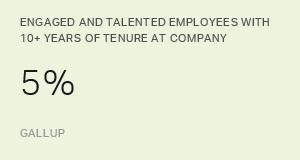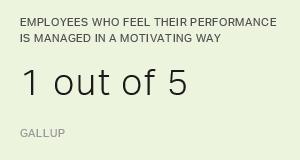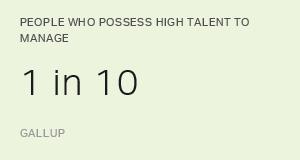The twelve key dimensions that describe great workgroups (part 12)
We have all faced the infamous job performance review. Typically, the first two minutes of the review are focused on what the manager likes about us and our work, and the remaining 58 minutes are spent on our "areas of opportunity" (the areas in which we're weak and should improve). We walk out of this kind of meeting feeling deflated and, while we have a clearer understanding of what we don't do well, we have little understanding of what we're good at.
The best managers recognize that a performance review provides time to discuss the progress and growth of an employee. It can help employees understand themselves better and give them a clear perspective on how their contributions really make a difference to the organization. This is why the value of quality, individualized feedback is one of the 12 key discoveries from a multiyear research effort by The Gallup Organization. Our objective was to identify the consistent dimensions of workplaces with high levels of four critical outcomes: employee retention, customer metrics, productivity, and profitability. The research identified 12 dimensions that consistently correlate with these four outcomes -- dimensions Gallup now uses to measure the health of a workplace. An associated research effort, in which Gallup studied more than 80,000 managers, focused on discovering what great managers do to create quality workplaces.
One of the paradoxes of management is that talented employees tend to lack an intuitive understanding of how their talents manifest themselves in specific behaviors. They need objective feedback to focus these talents to become more productive -- feedback managers can provide. Such managers understand that because talents are innate and natural, it is impossible not to use one's talents. So, instead of trying to change people by focusing on their weaknesses, great managers feel compelled to help employees gain self-understanding and knowledge about the talents they possess and apply every day at work.
Talent never becomes "talented" until an employee uses that talent in a specific role. Great managers are always encouraging employees to "look in the mirror" -- to know themselves well and to know the roles in which they are most likely to succeed. The world's greatest managers can answer some basic questions about every one of their employees: What do employees enjoy the most about their current and previous work experiences? What attracted them to the organization and what keeps them there? What are employees' talents and strengths? What are their goals for their current roles? How often would they like to meet to discuss their progress? Will they tell me how they're feeling or will I have to ask? What are their personal goals or commitments? What is the best praise and recognition they have ever received? What have been the most productive relationships they have had with a mentor or manager and what made the relationships so special?
Talent responds only in relationship to another human being. Thus, feedback must be specific to the individual, and must be given in the context of a positive employee-manager relationship. The last words of Item 11 -- "my progress" -- are extremely significant. Employees must walk away from any discussion of their growth with a clearer understanding of who they are, instead of who they are not.
In next week's column, we explore Item 12 of 12: "This last year, I have had opportunities at work to learn and grow."


